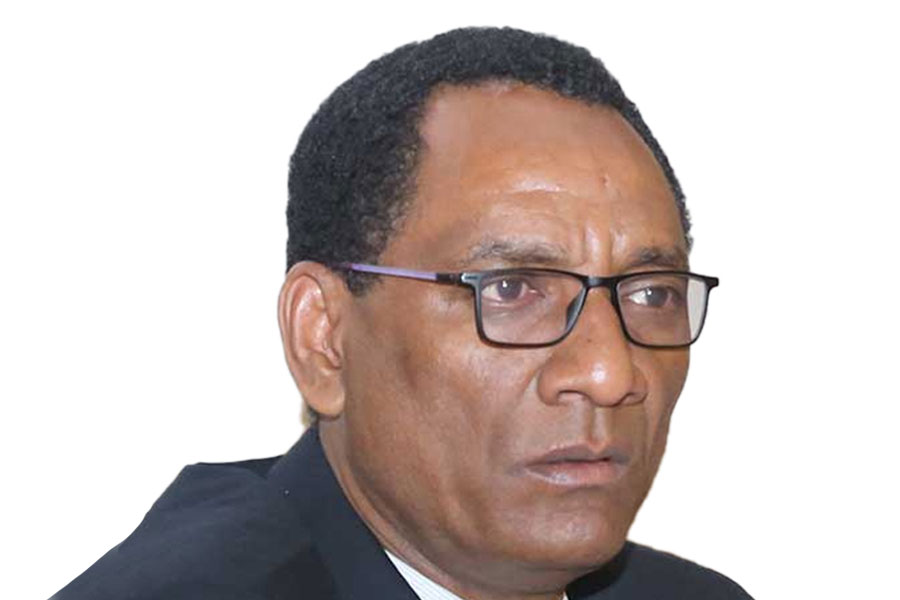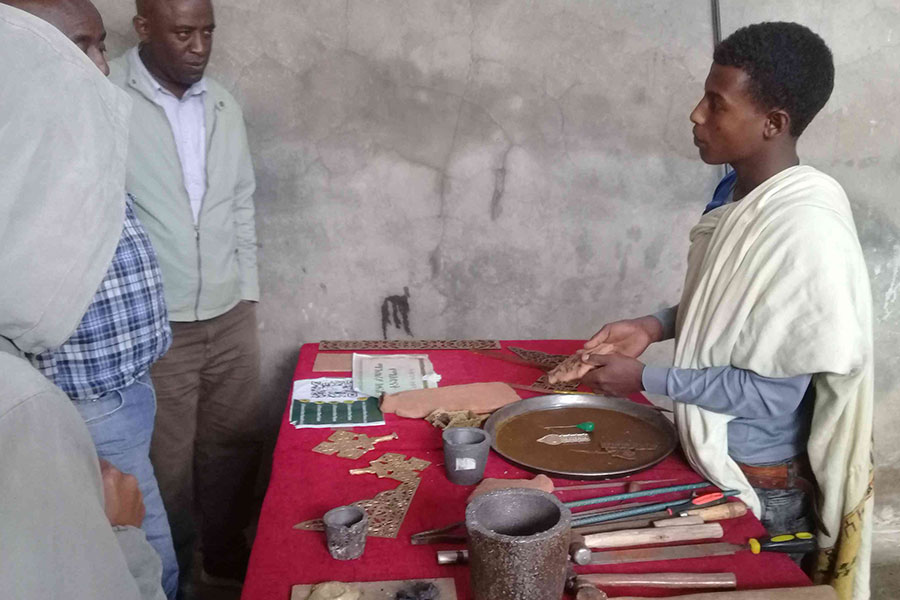
Fortune News | Aug 12,2023
Although predictable Yonas Zerihun's job in the ride-hailing service is not immune to accidents. For two years, his insurance company had reliably covered his claims, but a recent visit to the insurer left him disillusioned. After damage to his rear-view mirror and right window shield, Yonas was offered a 5,000 Br insurance claim payout— only half of the estimated repair cost.
"I was frustrated," he said.
At that moment, Yonas, 32, claims to have lost hope in the insurance altogether. He was left with the rest of the cost, after failed attempts to negotiate the settlement price. His frustration deepened as months went by before his claim was finally approved. The inadequate payout forced Yonas to face the soaring prices of spare parts, where the cost of a rear-view mirror alone exceeded his insurance compensation.
"It was more than what I could afford," he told Fortune.
Inflation has taken a toll on the insurance industry, particularly on motor insurance, which covers over 70pc of the market. They argue that rising costs on spare parts are squeezing their growth, profitability, and customer satisfaction while the surge in both the number and value of claims has further exacerbated the issue.
Yared Mola, president of the Association of Ethiopian Insurers, noted that companies are struggling with high claims due to the escalating costs of spare parts and medical treatments. He said that many are finding it difficult to remain profitable on premiums collected, raising concerns about the industry's overall health.
"Some companies are facing losses," Yared said.
Yared described a troubling scenario where policyholders are making larger claims, but retention rates are falling. He said this imbalance is creating difficulties for insurers, who are trying to keep up with the increasing claims without losing customers.
The intense competition within the insurance industry has left companies with little room to manoeuvre. Despite the pressure to adjust rates, insurers are reluctant, fearing they will lose customers. Some companies, desperate to retain clients, have even resorted to selling policies below the minimum premium rates set by the National Bank of Ethiopia (NBE). The NBE established these minimum rates last year to prevent price undercutting and maintain industry stability. However, regulatory oversight remains weak.
One of the 18 insurance companies, Africa Insurance S.C. is particularly affected. Motor insurance constitutes 90pc of its policies. According to Amanuel Kumsa, a sales agent at Africa Insurance, the spare part prices are inflating claims and putting pressure on insurers.
"We are torn between losing customers or incurring losses," Amanuel told Fortune.
Africa Insurance, which was incorporated in 1994 and had a paid-up capital of 276.3 million Br as of last year, has seen its recent profit growth driven by increases in investment income and the life insurance business, with net written premiums rising by 604.5 million Br. However, the company’s reliance on motor insurance remains a vulnerability.
To mitigate risks, Amanuel revealed that the insurer has implemented rate adjustments based on customer claims history. Careful drivers who avoid accidents can receive discounts of up to 50pc, while those with frequent claims face higher annual rates.
"It'll ensure prudence while driving," he said.
In 2021, insurance companies collected 855 million Br in motor insurance premiums, with nearly 20pc of that underwritten by the state-owned Ethiopian Insurance Corporation (EIC). The insurance sector’s contribution to GDP is about one percent, with a penetration rate of just 0.7pc. Most revenues come from compulsory insurance segments, with third-party motor insurance playing a dominant role.
Asteway Kassu, a former branch manager and sales agent at Zemen Insurance, has seen the impact of inflation on the industry firsthand. The cost of spare parts has skyrocketed, particularly in the motor vehicle subsector, making it difficult for insurers to maintain profitability. Zemen Insurance, for example, saw its net claims jump to 68.2 million Br last year from 15.4 million Br.
Insurers have been slow to adjust rates, partly due to a lack of customer awareness about how premiums are calculated. Most policyholders are unaware of the nuances of insurance policies and only express their dissatisfaction when claims are not fully covered.
The recent floatation of Ethiopia’s exchange rate has further complicated matters. A senior insurance executive warned that the industry is on the brink of major losses, especially in motor insurance, as spare parts prices have surged by 50pc. However, adjusting premiums in a highly competitive market is a difficult task. The executive noted that insurers must rethink their strategies to survive, suggesting a shift towards non-motor insurance products to ensure sustainability.
"Major shifts are paramount to guarantee sustainability," he said.
Ethiopia's insurance industry has changed over the years. During Emperor Haile Selassie’s reign, the sector performed with local insurers partnering with foreign companies and offering diversified products. However, the nationalisation of all 13 insurance companies following the 1974 revolution led to the creation of a state monopoly under the Ethiopian Insurance Corporation (EIC). It was not until 1990 that the market was liberalised, allowing private insurers to enter the fray.
The industry remains heavily reliant on motor insurance. Assegid Gebremedhin, an insurance consultant, emphasised the need for diversification. He pointed out that the industry's challenges go beyond rising costs, citing bureaucratic procedures, delays in re-evaluations, and fraudulent practices as other issues plaguing insurers.
"It has been abused," Assegid said.
He also noted the absence of proper categorisation between simple and complex claims, which has further complicated the situation. The recent exchange rate changes, which have driven up spare part costs, highlight the need for insurers to quickly adjust the sum insured to keep pace with market values. To address these challenges, Assegid recommends that motor insurance should constitute only 45pc of total insurance premiums, with the remaining distributed among other products.
"There needs to be a balanced portfolio," he said.
The rising cost of vehicles has also impacted spare parts prices, with some parts experiencing a two-fold increase. Gebremedhin Hagos, an operational manager at Hencon Heavy Machinery and Equipment Spare Parts Plc, noted that recent changes in exchange rates have exacerbated the problem, driving up freight and duty costs.
"Prices influence each other," he said.
Industry insiders offer a wider issue which resides in the prevalence of new vehicles. Moges Negash, an automotive engineer, has also observed a "group effect" where the influx of new vehicles, particularly electric and fuel-powered models, has led to inflated spare parts prices due to limited availability. He said fewer spare parts are making their way into the country and prices are ascending as a result.
As the number of vehicles on the road increases, Moges predicts that accidents will become more frequent, making it harder for insurers and drivers to agree on fair claim costs. "Familiarisation with the product is the only way," he said.
Garage owners like Mesay Atlaw in Addis Abeba’s Autobis Tera area are also feeling the pinch. The cost of fuel, servicing, and spare parts for older vehicles has become burdensome. Mesay noted that even finding spare parts has become difficult, with many items disappearing from dealers' shelves altogether.
"It has become a huge burden for businesses," he said.
Importers concur.
Dawit Wubshet, director of Wubget Group, which includes Crystal Automobiles, an agent for BMW vehicles and spare parts, said the recent surge in vehicle prices has been accompanied by a tripling of spare part costs. With the ban on fuel-based vehicles and the floating exchange rate, Dawit expects spare part prices to remain a major issue.
"Insurers are worried since they are forecasting future claims," Dawit told Fortune
PUBLISHED ON
Aug 18,2024 [ VOL
25 , NO
1268]

Fortune News | Aug 12,2023

My Opinion | Dec 30,2023

Verbatim | Apr 15,2023

Commentaries | May 07,2022

Radar | Mar 18,2023

Radar | Jan 16,2024

News Analysis | Mar 04,2023

Life Matters | Dec 02,2023

Agenda | Mar 14,2020

Agenda | May 20,2024

Dec 22 , 2024 . By TIZITA SHEWAFERAW
Charged with transforming colossal state-owned enterprises into modern and competitiv...

Aug 18 , 2024 . By AKSAH ITALO
Although predictable Yonas Zerihun's job in the ride-hailing service is not immune to...

Jul 28 , 2024 . By TIZITA SHEWAFERAW
Unhabitual, perhaps too many, Samuel Gebreyohannes, 38, used to occasionally enjoy a couple of beers at breakfast. However, he recently swit...

Jul 13 , 2024 . By AKSAH ITALO
Investors who rely on tractors, trucks, and field vehicles for commuting, transporting commodities, and f...

Oct 18 , 2025
The political establishment, notably the ruling party and its top brass, has become p...

Oct 11 , 2025
Ladislas Farago, a roving Associated Press (AP) correspondent, arrived in Ethiopia in...

Oct 4 , 2025
Eyob Tekalegn (PhD) had been in the Governor's chair for only weeks when, on Septembe...

Sep 27 , 2025
Four years into an experiment with “shock therapy” in education, the national moo...